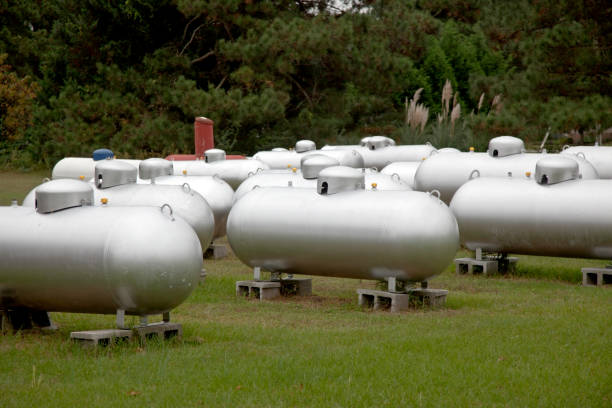How Summer Heat Affects Propane Storage and Safety

Propane is widely used for heating, cooking, and powering equipment, but high summer temperatures can create challenges for its safe storage and handling. When temperatures rise, propane tanks experience increased pressure, which can affect safety if not properly managed. Understanding how summer heat impacts propane storage and taking the right precautions can help prevent accidents, protect equipment, and ensure a smooth supply of fuel during the warmer months.
How Heat Affects Propane Storage
Propane expands when exposed to heat, causing pressure inside the storage tank to rise. While propane tanks are designed to handle pressure changes, extreme heat can push tanks closer to their safety limits. If the pressure becomes too high, the tank’s relief valve may activate, releasing propane gas to prevent an explosion. While this safety feature is essential, uncontrolled gas release can be dangerous if it happens near an ignition source or in an enclosed space.
Direct sunlight on propane tanks can hasten potential pressure buildup. Tanks that are not properly ventilated or placed in shaded areas may reach higher temperatures, increasing the risk of overpressurization. Businesses and homeowners should take extra care in the summer to keep propane tanks in safe conditions.
Safe Storage Practices During Hot Weather
Proper storage and handling can reduce the risks associated with summer heat. Keeping propane tanks in a shaded, well-ventilated area helps prevent excessive pressure buildup. Tanks should never be stored inside enclosed spaces, such as sheds or garages, where heat can become trapped.
Regular inspections ensure that tanks, valves, and fittings are in good condition. Checking for leaks, rust, or damage before the summer months can help prevent accidents. If a tank is exposed to high temperatures, it is important to monitor for any unusual gas smells or hissing sounds that could indicate a release of propane.
For larger propane storage facilities, ensuring proper airflow around tanks can help regulate temperature. Installing protective covers or barriers can also prevent direct sunlight from overheating storage tanks.
Preventing Pressure-Related Issues
To manage propane pressure in the summer, tanks should never be filled to full capacity. Most propane tanks are only filled to about 80% to leave room for gas expansion. This safety margin helps reduce the risk of pressure buildup when temperatures rise.
Propane regulators and relief valves should also be inspected regularly to ensure they are functioning properly. If a relief valve releases propane due to high pressure, the area should be well-ventilated, and any sources of ignition should be kept away. Allowing the tank to cool naturally and avoiding rapid cooling methods, such as dousing it with cold water, can help to safely stabilize the pressure.
Protecting Equipment and Infrastructure
Summer heat doesn’t just affect propane tanks; it can also impact delivery vehicles, storage facilities, and fuel lines. Propane delivery trucks should be parked in shaded areas when not in use in order to prevent excessive heat exposure. Regular maintenance checks on fuel lines, hoses, and valves ensure that heat-related expansion and contraction do not lead to leaks or failures.
Business owners should also train their employees on summer propane safety, ensuring that they understand how heat affects propane storage and handling. Educating customers about the aforementioned best practices for home propane tanks can also reduce the risk of pressure-related issues.
Keeping Your Business Safe and Efficient
Managing propane storage in hot weather is essential for maintaining safety and ensuring uninterrupted service. Taking strategic steps to reduce heat exposure, inspecting tanks regularly, and following proper filling guidelines can help avoid pressure-related problems.
For propane businesses, maintaining a safe and efficient operation during summer means protecting both customers and employees. By understanding how heat affects propane and taking proactive measures, businesses can prevent accidents, reduce product loss, and continue delivering reliable service throughout the hottest season of the year.














